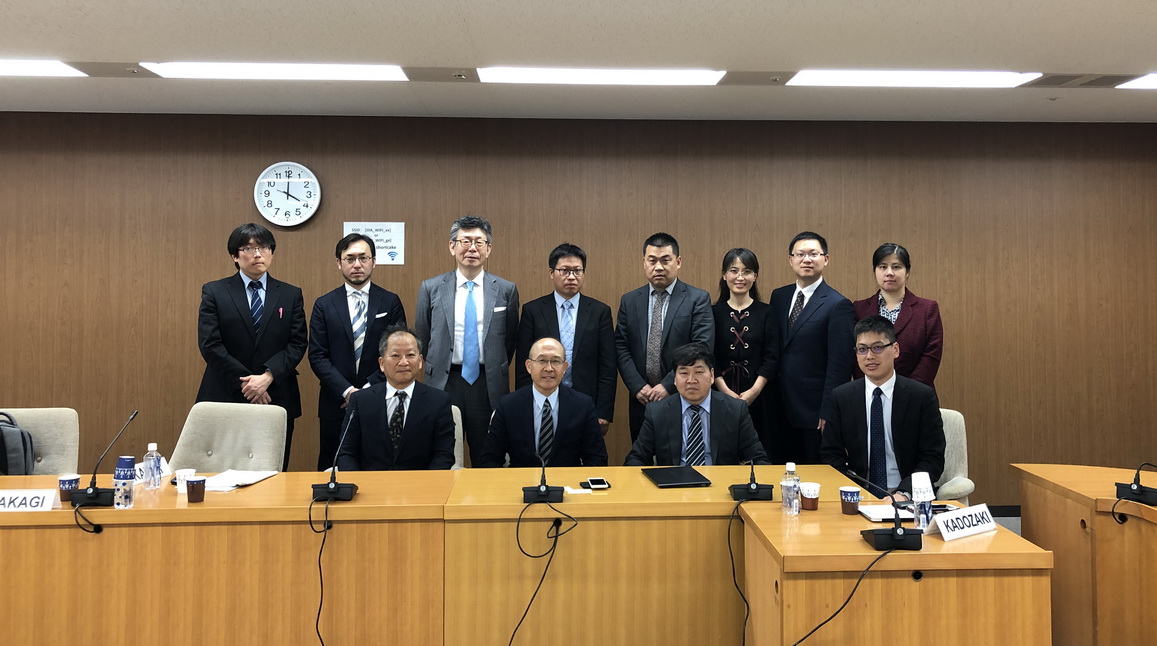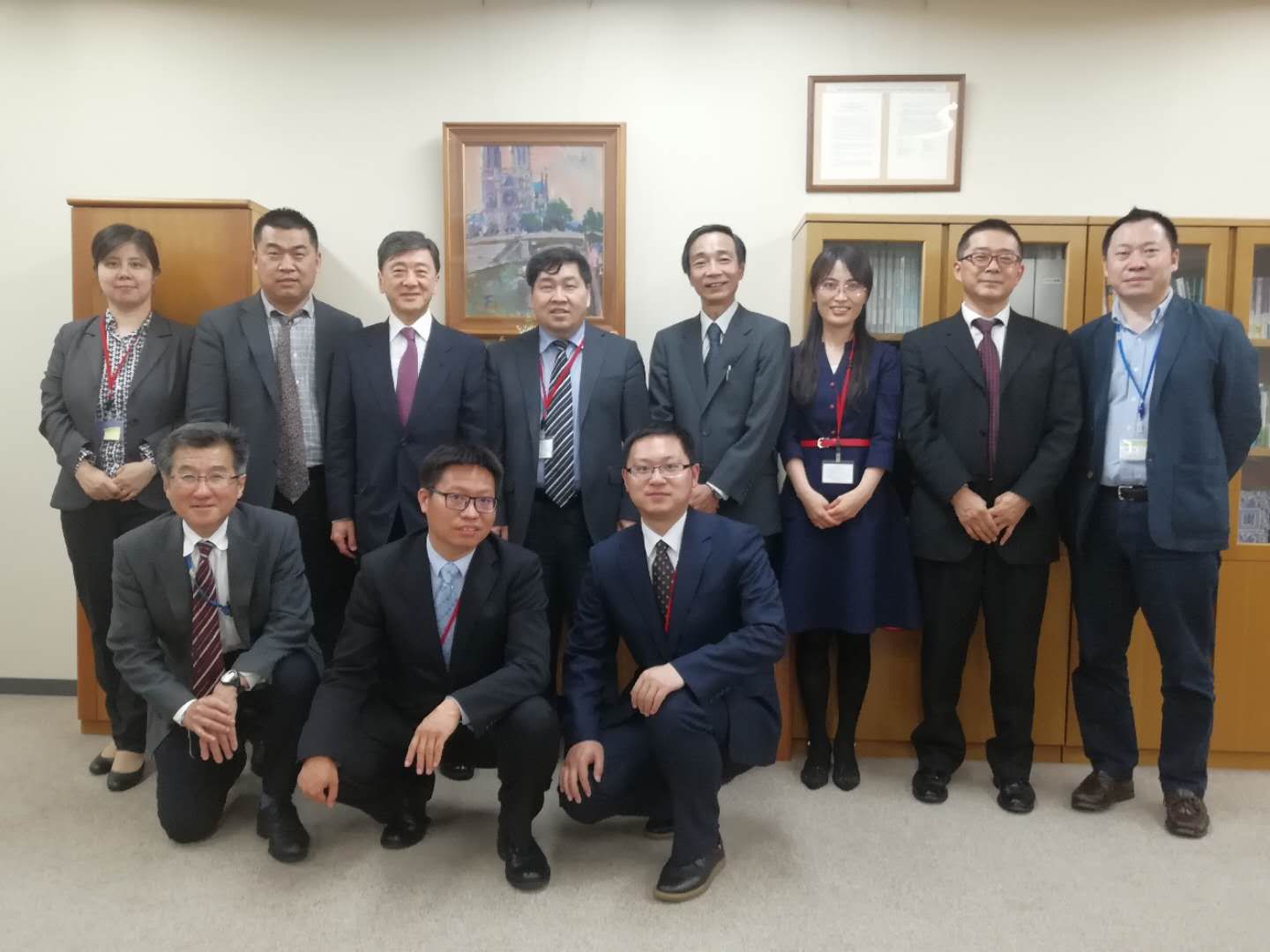CCIEE Research Team Conducts Fact-finding Trip to Tokyo, Japan
- Time:2019-05-24
- source:CCIEE
From April 22 to 26, 2019, Zhang Yongjun, deputy chief economist of CCIEE, led a joint research team to Tokyo, Japan, discussing various issues with different Japanese organizations, such as the modernization reform of the World Trade Organization (WTO), the G20 Osaka Summit, the political and economic situation in Northeast Asia, economic and trade integration arrangements, Sino-Japanese economic development and third-party market cooperation. The research team exchanged views with a number of institutions and government departments during their trip, including the Research Institute of Economy, Trade and Industry, Policy Research Institute, Ministry of Financial, Japan Institute of International Affairs, Norinchukin Research Institute Co., Ltd., Canon Institute for Global Studies, Nomura Research Institute, Japan Bank for International Cooperation, Japan External Trade Organization, and Japan-China Economic Association. Liu Xiangdong, Xu Changchun, Lu Xinhong, Li Haodong and Liu Juan of CCIEE participated in the trip.

During their visit to the Japan-China Economic Association, the team members discussed such issues as Osaka G20, WTO reform, and regional economic integration in Asia. The Japanese side believes that a major issue facing the G20 Osaka Summit is how to establish a complete and universal international rules system based on mutual understanding. In terms of WTO reform, the Japanese side noted that the two sides should carry out high-quality third-party market cooperation in line with international standards on the principles of openness, transparency, economic and financial soundness. In terms of regional economic integration, they suggested that China and Japan, as the two major economies in Asia, should work together to establish broader and high-quality reciprocal trade rules, and accelerate the early realization of regional economic integration arrangements such as the China-Japan-ROK FTA.

Furthermore, the research team visited the Japan Institute of International Affairs, and exchanged views on regional economic integration in Asia and the North Korean issue. The Japanese side believes that the early realization of the Japan-China-ROK FTA will have important practical significance, especially in the context of the current anti-free trade movement. Regarding the DPRK issue, the Japanese side pointed out that after the DPRK abandoned its nuclear program, the international community should also urge North Korea to join international systems such as the World Bank and the International Monetary Fund so that North Korea could return to the international arena. Whether North Korea can return to the international political arena and become a normal country is an important factor in determining the economic structure of Northeast Asia.

When visiting the Policy Research Institute, Ministry of Finance, Japan, CCIEE research team discussed issues such as WTO reform and the trend of the world economy. The Japanese side believes that the WTO system needs to carry out necessary reforms in the following three aspects. First, it is necessary to strengthen the supervision function, that is, to enhance the function of fulfilling the notification obligation; second, it is necessary to strengthen the negotiation function, which means to establish some new rules in response to new changes; and third, to strengthen the dispute settlement mechanism. The officials of the Policy Research Institute are quite optimistic about the world economy. They believe that the US financial policy will be relaxed in the future, the Sino-U.S. economic and trade frictions will ease, and China’s policy for steady economic growth will gradually take effect. Therefore, the world economy will recover in the second half of 2019, and the Japanese government expects that private consumption and investment will support economic growth.

At the Research Institute of Economy, Trade and Industry, the two sides conducted in-depth discussions on issues such as the effects of Japan’s economic restructuring policy and trade protectionism. The Japanese believes that the Abe government has adopted a series of policies to increase women’s employment, reintegrate the elderly and increase foreign labor, which has indeed achieved certain goals and pushed up the potential growth rate. However, there is not much room for increasing the potential growth rate by increasing the amount of labor in the future, and the only solution is to improve total factor productivity. In terms of trade, due to the fact that both Japan and the US have their own special interests, the current Japan-US economic and trade negotiations are likely to become transactional negotiations, and the outcome may be in conflict with the principle of freedom that Japan has always upheld. Moreover, the Japan-US economic and trade negotiations is likely to be long-term in nature and will not make immediate progress. At the same time, it is difficult for Japan to accept the “poison pill clauses” added by the United States in the Japan-US FTA.
